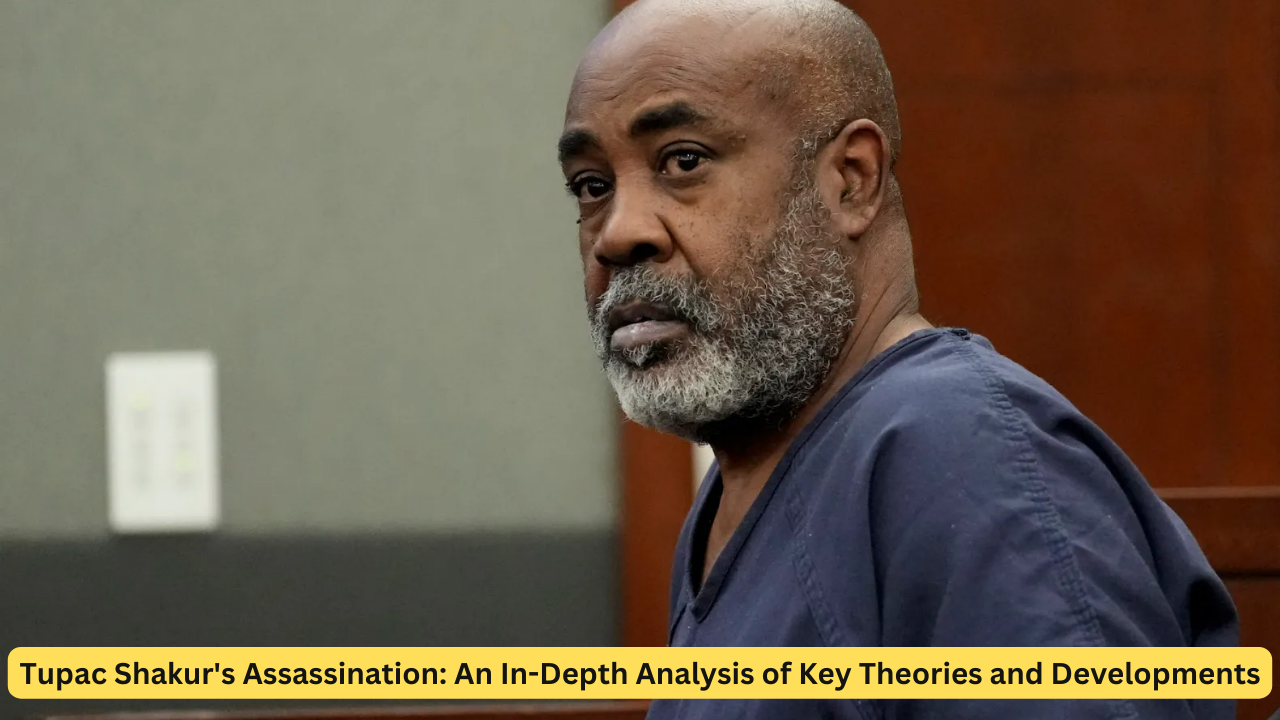Tupac Shakur’s assassination remains one of the most controversial and enduring mysteries in the world of hip-hop and criminal justice. This comprehensive analysis explores the circumstances surrounding Shakur’s untimely death, delving into theories and developments that have emerged over the years.
The Night of the Assassination
On September 7, 1996, Tupac Shakur, a renowned rapper and cultural icon, was involved in a violent altercation in Las Vegas, Nevada. Shakur, who had been attending a Mike Tyson boxing match, was shot multiple times in a drive-by shooting on the Las Vegas Strip. He succumbed to his injuries six days later, on September 13, 1996, at the age of 25.
The Drive-By Shooting Incident
The attack on Shakur was executed with precision and brutality. According to reports, a white Cadillac, driven by an unidentified assailant, approached Shakur’s car at a stoplight and opened fire. The gunfire struck Shakur multiple times, leading to severe injuries. Despite immediate medical attention, Shakur’s condition deteriorated rapidly.
Initial Investigations and Witness Accounts
In the aftermath of the shooting, Las Vegas Metropolitan Police launched an extensive investigation into the assassination. Numerous witnesses were interviewed, and evidence was gathered, but the case remained unsolved. The lack of concrete leads and reliable witnesses contributed to the case’s stagnation.
Key Theories and Speculations
The East Coast-West Coast Rivalry
One prominent theory surrounding Tupac Shakur’s assassination involves the infamous East Coast-West Coast rivalry in hip-hop. During the mid-1990s, tensions between the East Coast and West Coast rap scenes were at their peak, with Shakur representing the West Coast. Some speculate that the shooting was a result of this ongoing feud, involving rivalries with other artists and their associates.
Diddy and the Million-Dollar Allegations
Recent developments in the case have brought new attention to the theory that Sean “Diddy” Combs, a prominent figure in the hip-hop industry, may have been involved in Shakur’s murder. Allegations surfaced that Diddy paid a significant sum of money related to the shooting. These claims emerged during the trial of Keefe D, a key figure in the investigation, who has been linked to the shooting. While these allegations have stirred considerable controversy, concrete evidence linking Diddy to the assassination remains elusive.
The Role of Keefe D
Keefe D, whose real name is Duane Keith Davis, is a notorious figure in the investigation of Shakur’s death. He has been linked to the shooting through various statements and legal proceedings. Davis has claimed to have inside knowledge about the events leading up to and following the shooting. However, his statements have been inconsistent and controversial, leaving many questions unanswered.
Impact on Tupac’s Legacy
Cultural and Artistic Influence
Tupac Shakur’s legacy extends far beyond his tragic death. His music and activism continue to influence generations of artists and activists. Shakur’s work, characterized by its raw emotional depth and social commentary, remains a cornerstone of hip-hop culture. Despite the unresolved nature of his assassination, Shakur’s impact on music and society endures.
Ongoing Investigations and Public Interest
The assassination of Tupac Shakur continues to capture public interest, with ongoing investigations and media coverage keeping the case in the spotlight. Documentaries, books, and media reports frequently revisit the case, contributing to the continued fascination and speculation surrounding Shakur’s death.
Conclusion
Tupac Shakur’s assassination remains one of the most enigmatic and debated cases in modern history. The theories and developments surrounding his death, including allegations involving notable figures and key individuals like Keefe D, add layers of complexity to the case. Despite the passage of time, the quest for justice and understanding continues, reflecting the enduring impact of Tupac Shakur on culture and music.
